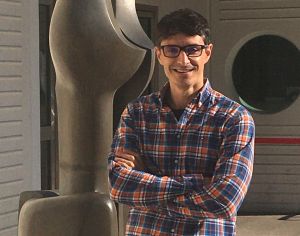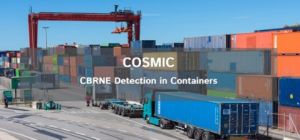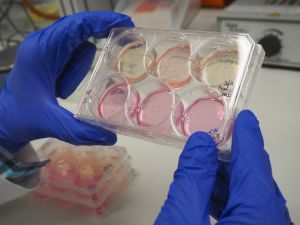
Dos investigadores del CNB en la nueva lista de investigadores más citados

Un año más, Roberto Solano aparece en la lista que elabora Clarivate Analytics con los científicos más citados en el área de ciencias animales y vegetales. José Manuel Franco se une a esta lista por primera vez.
Las investigaciones de Solano y su grupo del departamento de Genética Molecular de Plantas son reconocidas por octavo año consecutivo en una lista en la que se encuentran 117 científicos españoles, 19 de los cuales pertenecen al Consejo Superior de Investigaciones Científicas. Este año, la representación del CNB-CSIC aumenta, con la inclusión por primera vez en este ranking de José Manuel Franco, también investigador del departamento de Genética Molecular de Plantas.
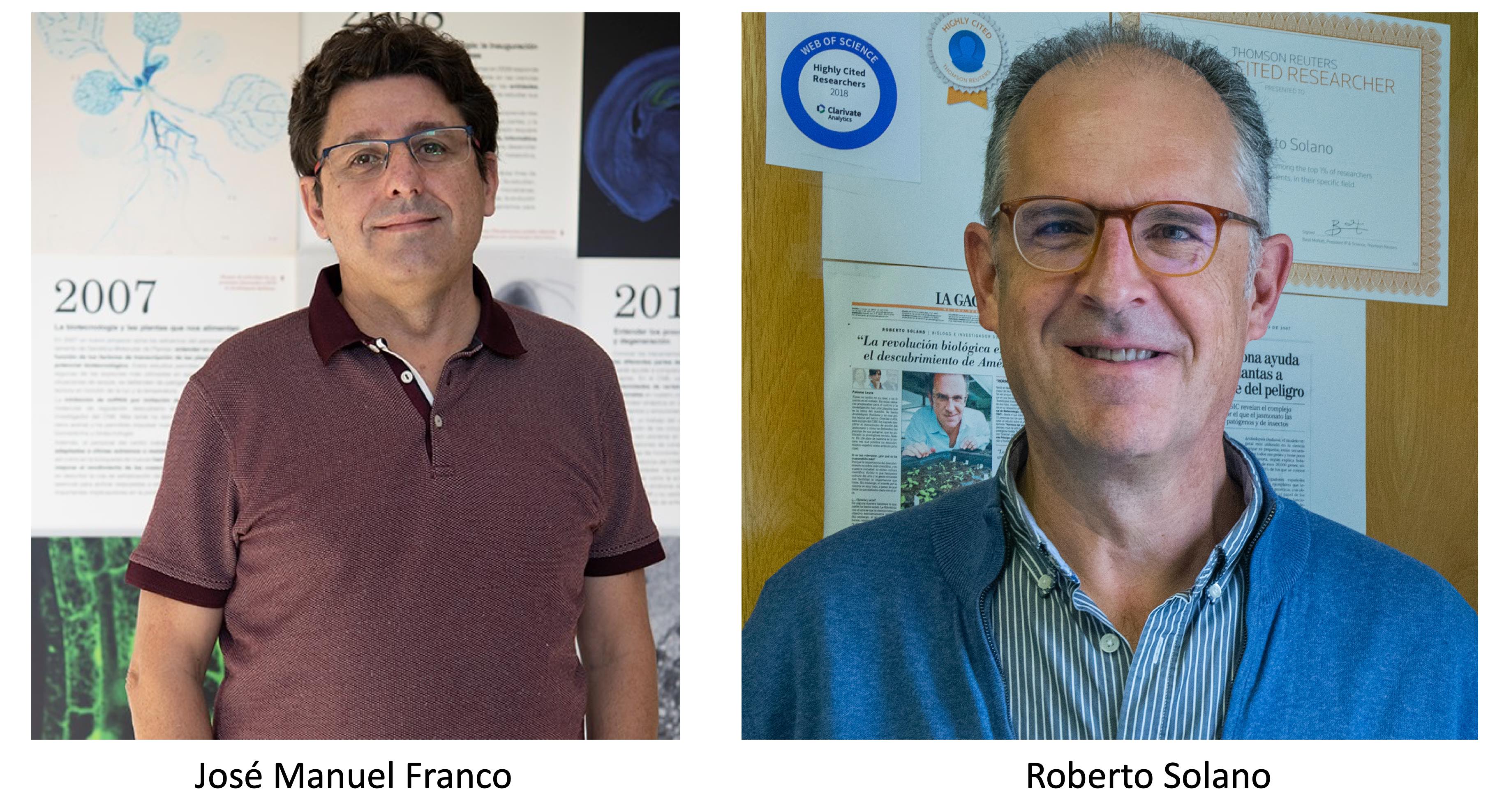
XXIX Workshop ADVANCES IN MOLECULAR BIOLOGY BY YOUNG RESEARCHERS ABROAD
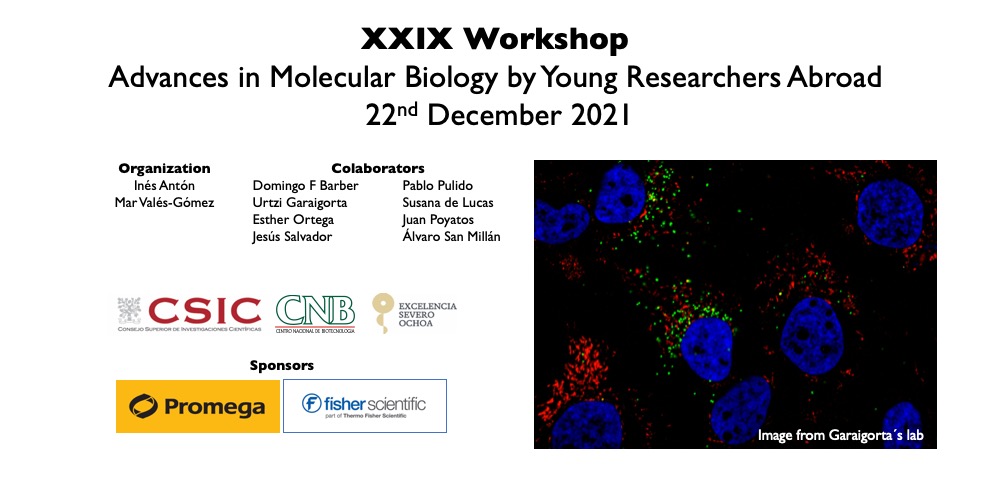
The Centro Nacional de Biotecnología (CNB-CSIC) will host the 29th edition of the traditional conference “Advances in Molecular Biology by Young Researchers Abroad” next 22nd of December 2021.
The CNB invites all postdoctoral scientists working abroad to join us on the 22nd of December to present their work at the now traditional conference series “Advances in Molecular Biology by Young Researchers Abroad”, organised just before the Christmas break.
For the last 29 years, this event has been a point of contact for scientists interested in sharing their research with the Spanish scientific community. Besides the exchange of the latest scientific advances, the conference is a unique showcase of the best young talent in the research community abroad.
In addition, a networking session to promote the interaction between CNB researchers and the speakers will be held. The intention of these short meetings is to establish a one-to-one first contact with CNB researchers.
We look forward to seeing all of you, to make the workshop as successful as in previous years. Please distribute this announcement to your contacts.
More information here
José Luis Martínez: “Aunque los antibióticos se usen bien, van a aparecer resistencias porque se trata de un proceso evolutivo”
Un equipo del CNB-CSIC identifica el mecanismo de la respuesta inmune en la cavidad peritoneal frente a infecciones bacterianas
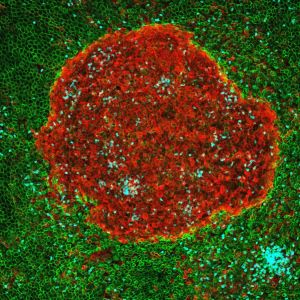
- Agregados de macrófagos peritoneales, con linfocitos B y neutrófilos, crean un microambiente crucial para controlar las infecciones abdominales
El equipo de Carlos Ardavín en el CNB-CSIC ha identificado el mecanismo de activación de la respuesta inmune de la cavidad peritoneal (el espacio entre la pared y los órganos abdominales) frente a infecciones bacterianas. El estudio describe cómo la formación de agregados de macrófagos peritoneales crea un microambiente crucial para el control de las infecciones. Los macrófagos son células que pueden reconocer y eliminar células tumorales, microbios, restos celulares o sustancias extrañas.
La cavidad peritoneal está expuesta a graves patologías, como la sepsis y la metástasis de tumores derivados de cáncer de ovario, gástrico y colorrectal, por lo que es crucial conocer cómo el sistema inmune de la cavidad peritoneal responde ante dichas enfermedades. Esta investigación, publicada en la revista Immunity, ayuda a comprender cómo el sistema inmune responde de manera localizada frente a dichas enfermedades abdominales.
“La sepsis se caracteriza por una respuesta desregulada del sistema inmune ante una infección y es una de las principales causas de fallecimiento en todo el mundo”, explica Ardavín, investigador del CSIC en el Centro Nacional de Biotecnología (CNB-CSIC), quien ha liderado el grupo de investigación de este estudio. “Conocer los mecanismos de esta respuesta inmune es fundamental para poder combatir estas infecciones abdominales”, añade.
El CNB-CSIC recibe la Gran Cruz Azul Zendal-Balmis
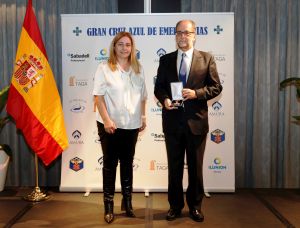
- Este galardón, creado por la Orden Gran Cruz Azul de Emergencias, reconoce la contribución de instituciones y personalidades en la lucha contra la crisis sanitaria causada por la pandemia de COVID-19.
El Centro Nacional de Biotecnología (CNB-CSIC) así como el Consejo Superior de Investigaciones Científicas (CSIC) han sido condecorados con la “Cruz Azul Zendal-Balmis” concedidos por la Orden Gran Cruz Azul de Emergencias. Este galardón se otorga en reconocimiento a quienes han contribuido en la lucha contra la crisis sanitaria de inicios del siglo XXI.
El acto de entrega se ha celebrado el día 15 de octubre en Madrid, y ha sido presidido D. Vicente del Bosque González, Presidente de Honor y miembro permanente del Consejo Rector de la Orden Cruz Azul de Emergencias. Entre los condecorados destacan representantes de distintas entidades civiles, científicas, militares, policiales, sanitarias y de emergencias que han sido galardonados en reconocimiento a tan encomiable trabajo, sacrificio entrega y dedicación.
El Profesor Fernando Rojo de Castro, investigador y vicedirector del CNB, ha recogido la condecoración en representación del centro y agradecido el reconocimiento a la labor científica realizada. “En este tiempo, la coordinación de esfuerzos y la colaboración de diferentes grupos de investigación ha servido para desarrollar estrategias de respuesta y soluciones a la actual pandemia de COVID-19, demostrando el valor de la ciencia para aportar soluciones en tiempos de crisis”.
COSMIC project has developed new sensors to detect CBRNE threats in containers
José María Valpuesta: “Para entender cómo funciona un proceso biológico hay que estudiar las proteínas”
Cycle and Junior Seminars 21/22
Investigadores del CSIC evaluarán la eficacia de un anticuerpo monoclonal sintético contra el cáncer
COOKIES POLICY
A cookie is a text file that is stored on your computer or mobile device via a web server and only that server will be able to retrieve or read the contents of the cookie and allow the Web site remember browser preferences and navigate efficiently. Cookies make the interaction between the user and the website faster and easier.
General information
This Website uses cookies. Cookies are small text files generated by the web pages you visit, which contain the session data that can be useful later in the website. In this way this Web remembers information about your visit, which can facilitate your next visit and make the website more useful.
How do cookies?
Cookies can only store text, usually always anonymous and encrypted. No personal information is ever stored in a cookie, or can be associated with identified or identifiable person.
The data allow this website to keep your information between the pages, and also to discuss how to interact with the website. Cookies are safe because they can only store information that is put there by the browser, which is information the user entered in the browser or included in the page request. You can not run the code and can not be used to access your computer. If a website encrypts cookie data, only the website can read the information.
What types of cookies used?
The cookies used by this website can be distinguished by the following criteria:
1. Types of cookies as the entity that manages:
Depending on who the entity operating the computer or domain where cookies are sent and treat the data obtained, we can distinguish:
- Own cookies: are those that are sent to the user's terminal equipment from a computer or domain managed by the editor itself and from which provides the service requested by the user.
- Third party cookies: these are those that are sent to the user's terminal equipment from a machine or domain that is not managed by the publisher, but by another entity data is obtained through cookies.
In the event that the cookies are installed from a computer or domain managed by the editor itself but the information collected by these is managed by a third party can not be considered as party cookies.
2. Types of cookies as the length of time that remain active:
Depending on the length of time that remain active in the terminal equipment can be distinguished:
- Session cookies: cookies are a type designed to collect and store data while the user accesses a web page. Are usually used to store information that only worth preserving for the service requested by the user at any one time (eg a list of products purchased).
- Persistent cookies: cookies are a type of data which are stored in the terminal and can be accessed and treated for a period defined by the head of the cookie, and can range from a few minutes to several years.
3. Cookies types according to their purpose:
Depending on the purpose for which the data are processed through cookies, we can distinguish between:
- Technical cookies: these are those that allow the user to navigate through a web page or application platform and the use of different options or services it exist as, for example, control traffic and data communication, identify the session, access to restricted access parts, remember the elements of an order, make the buying process an order, make an application for registration or participation in an event, use security features while browsing store content for dissemination videos or sound or share content via social networks.
- Customization cookies: these are those that allow the user to access the service with some general characteristics based on a predefined set of criteria in the user terminal would eg language, the type of browser through which you access the service, the locale from which you access the service, etc.
- Analysis cookies: they are those that allow the responsible for them, monitoring and analyzing the behavior of users of the web sites that are linked. The information gathered through such cookies are used in measuring the activity of web sites, application or platform and for the profiling of user navigation of such sites, applications and platforms, in order to make improvements function data analysis how users use the service.
Management tool cookies
This Website uses Google Analytics.
Google Analytics is a free tool from Google that primarily allows website owners know how users interact with your website. Also, enable cookies in the domain of the site in which you are and uses a set of cookies called "__utma" and "__utmz" to collect information anonymously and reporting of website trends without identifying individual users..
For statistics of use of this website use cookies in order to know the level of recurrence of our visitors and more interesting content. This way we can concentrate our efforts on improving the most visited areas and make the user more easily find what they are looking for. On this site you can use the information from your visit for statistical evaluations and calculations anonymous data and to ensure the continuity of service or to make improvements to their websites. For more details, see the link below privacy policy [http://www.google.com/intl/en/policies/privacy/]
How to manage cookies on your computer: disabling and deleting cookies
All Internet browsers allow you to limit the behavior of a cookie or disable cookies within settings or browser settings. The steps for doing so are different for each browser, you can find instructions in the help menu of your browser.
If you decline the use of cookies, since it is possible thanks to the preferences menu of your browser or settings, reject, this website will continue to function properly without the use of the same.
Can you allow, block or delete cookies installed on your computer by setting your browser options installed on your computer:
- For more information about Internet Explorer click here.
- For more information on Chrome click here.
- For more information about Safari click here.
- For more information about Firefox click here.
Through your browser, you can also view the cookies that are on your computer, and delete them as you see fit. Cookies are text files, you can open and read the contents. The data within them is almost always encrypted with a numeric key corresponding to an Internet session so often has no meaning beyond the website who wrote it.
Informed consent
The use of this website on the other hand, implies that you paid your specific consent to the use of cookies, on the terms and conditions provided in this Cookies Policy, without prejudice to the measures of deactivation and removal of cookies that you can take, and mentioned in the previous section.

